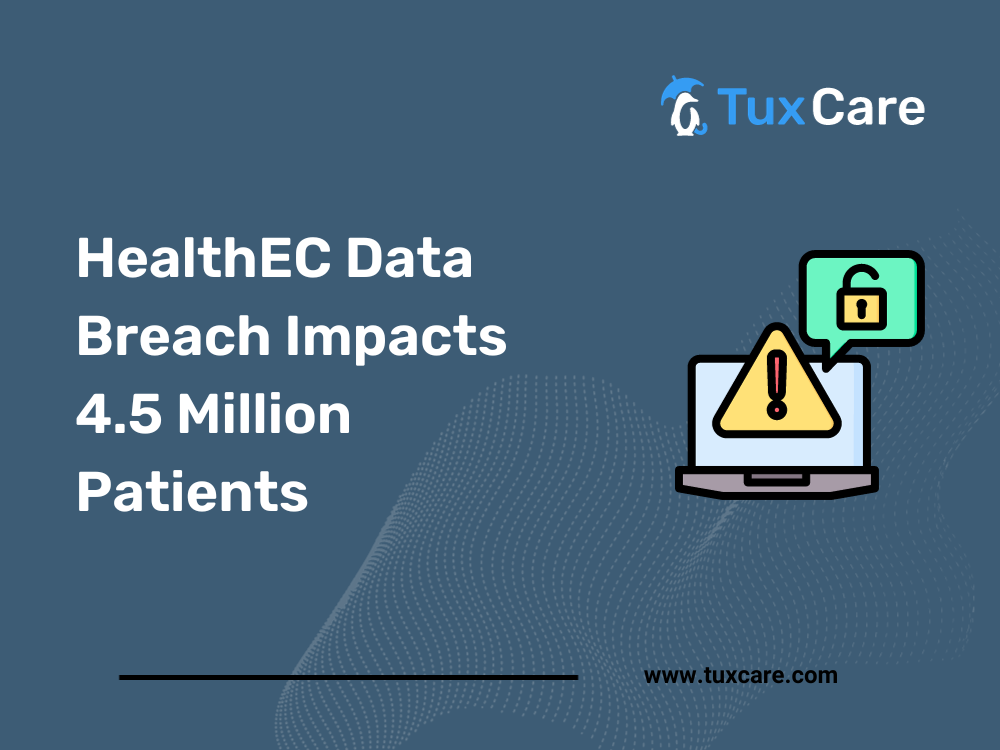HealthEC Data Breach Impacts 4.5 Million Patients
In the evolving landscape of healthcare cybersecurity, the recent data breach at HealthEC LLC has sent shockwaves through the industry, affecting nearly 4.5 million individuals who received care through the company’s diverse clientele. This incident, which unfolded between July 14 and 23, 2023, highlights the critical need for robust cybersecurity measures in managing sensitive healthcare data.
HealthEC is recognized for providing cutting-edge population health management (PHM) solutions, offering healthcare organizations a comprehensive platform for data integration, analytics, care coordination, patient engagement, compliance, and reporting. However, the recent breach has raised concerns about the security of such platforms and the potential risks to patient privacy.
The HealthEC Breach Details
The data breach, discovered on December 22, 2023, resulted in unauthorized access to HealthEC’s systems. By the time the inquiry was finished on October 24, 2023, it was clear that the hacker had accessed private data without authorization. The compromised data includes names, addresses, dates of birth, social security numbers, taxpayer identification numbers, medical records, and extensive healthcare-related details such as diagnoses, prescription information, and insurance details.
Impacted Individuals and Healthcare Organizations
Initially, HealthEC did not disclose the extent of the breach, but a report sent to the Attorney General’s office in Maine indicated that 112,005 individuals associated with MD Valuecare were affected. A subsequent disclosure on the breach portal of the U.S. Department of Health and Human Services painted a more comprehensive picture, revealing that a staggering 4,452,782 individuals were impacted. The breach had ramifications for 17 healthcare service providers and state-level health systems, including notable names like Corewell Health, HonorHealth, Beaumont ACO, State of Tennessee – Division of TennCare, University Medical Center of Princeton Physicians’ Organization, and the Alliance for Integrated Care of New York.
HealthEC has advised affected individuals to remain vigilant against identity theft and fraud. The company recommends regular review of account statements, explanation of benefits statements, and monitoring free credit reports for any suspicious activities or errors. Additionally, it is essential to promptly notify relevant parties—such as insurance companies, healthcare providers, and financial institutions—of any suspicious activity.
Conclusion
The HealthEC data breach is a sobering reminder of the weaknesses in the digital architecture of the healthcare industry. Data security needs to be a primary concern since technology is still essential to the management of healthcare. In order to ensure a healthy and safe healthcare ecosystem for everybody, this event highlights the significance of strong cybersecurity protections and proactive initiatives to protect patient privacy.
TuxCare streamlines the patching process for healthcare providers by enabling automatic deployment of patches to the Linux system and other critical hosts, without the need for system reboots or scheduled maintenance windows. This ensures that healthcare organizations can uphold continuous operation and minimize service disruptions associated with patching.
Speak to a TuxCare security expert to get started with live patching services for kernels, shared libraries, virtualization systems, or open-source databases across all popular Linux distributions.
The sources for this article include a story from BleepingComputer.



 Documentation
Documentation Login
Login




